From Hermès to H&M: What Luxury Boots Teach Us About Smart Shopping
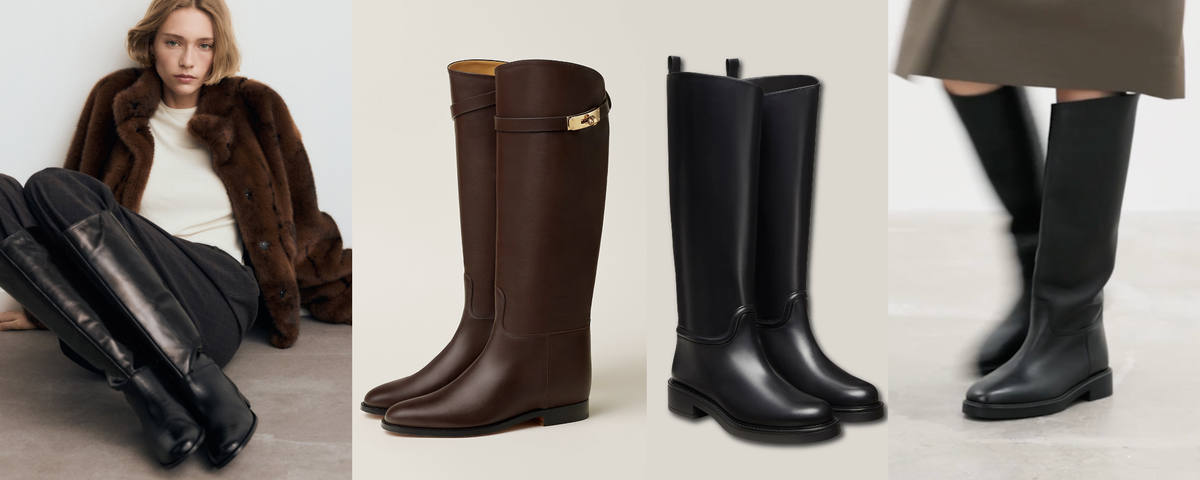
Watch the Video | Shop My Picks
Riding boots with decorative straps are everywhere this fall, but how do you separate the solid choices from the stylish letdowns? I applied my years of boot shopping to this year's crop, from $85 H&M faux leather to $3,175 Hermès calfskin, to demonstrate the quality markers that actually matter, and which tradeoffs are right for you at different price points.
The Details That Tell the Quality Story
Heel Counter Smoothness
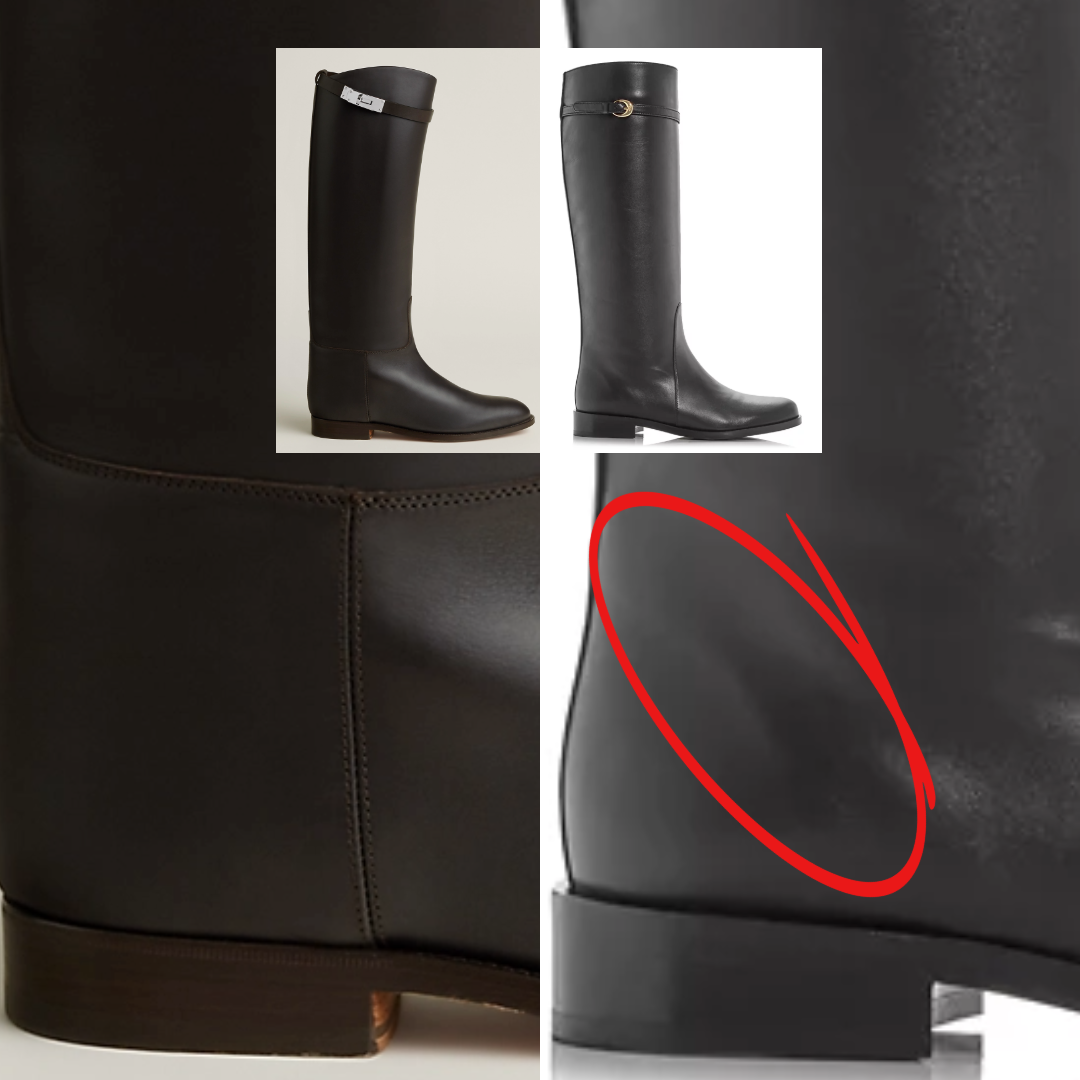
The heel counter – that reinforcement at the back of the boot – reveals a central challenge in shoemaking: how to give supple leather structure in some areas and flexibility right next door. The heel of the boot should cup the heel of the foot and stand tall as you walk. Next to the heel? The ankle needs to bend, and the boot should follow.
Some shoe making techniques are better at finessing the transition from the rigid heel to the malleable foot and shaft. At Hermès, the inner structuring layers are meticulously skived (thinned and smoothed) so the borders are invisible. At more accessible price points like Massimo Dutti, you might see a slight ridge. This arc-shaped shadow isn't just aesthetic: smoother heel counters tend to show less visible wear over time. Preloved boots tell this story beautifully. Compare a well-worn Hermès to other brands and you'll see how construction affects longevity.
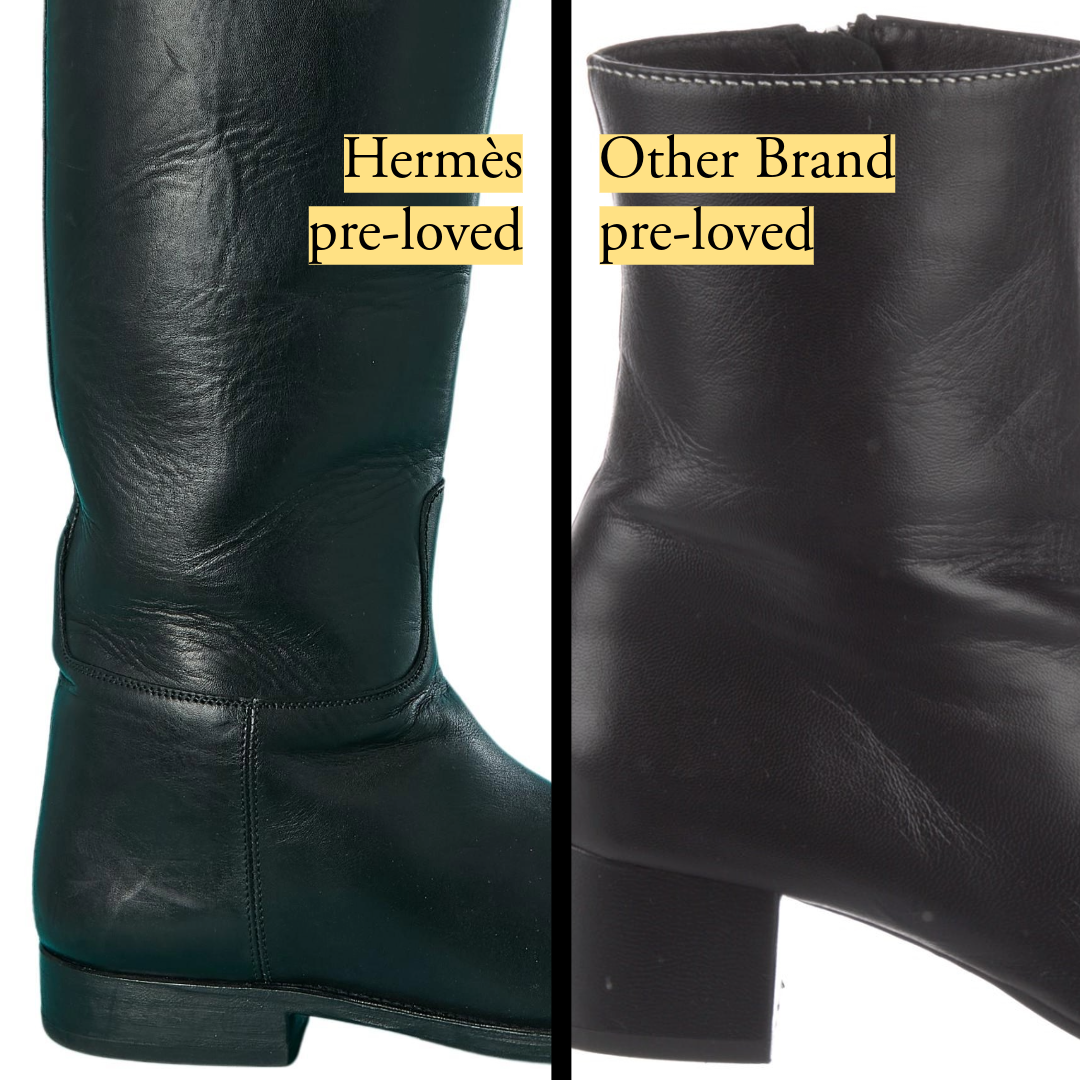
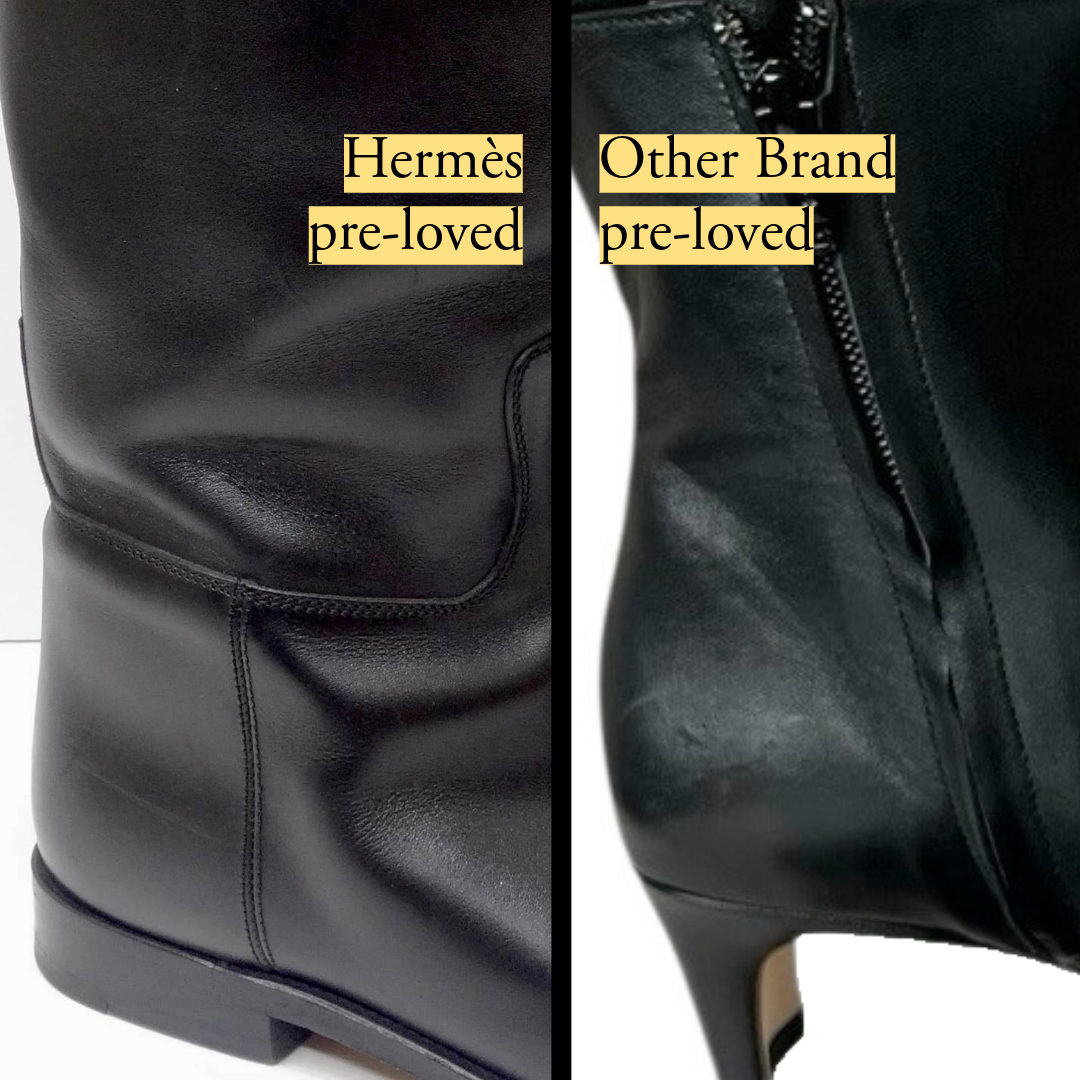
Hermès preloved Jumping Boots compared to more preloved boots from the other brand – the heel counter becomes more pronounced with wear
Strap Finishing
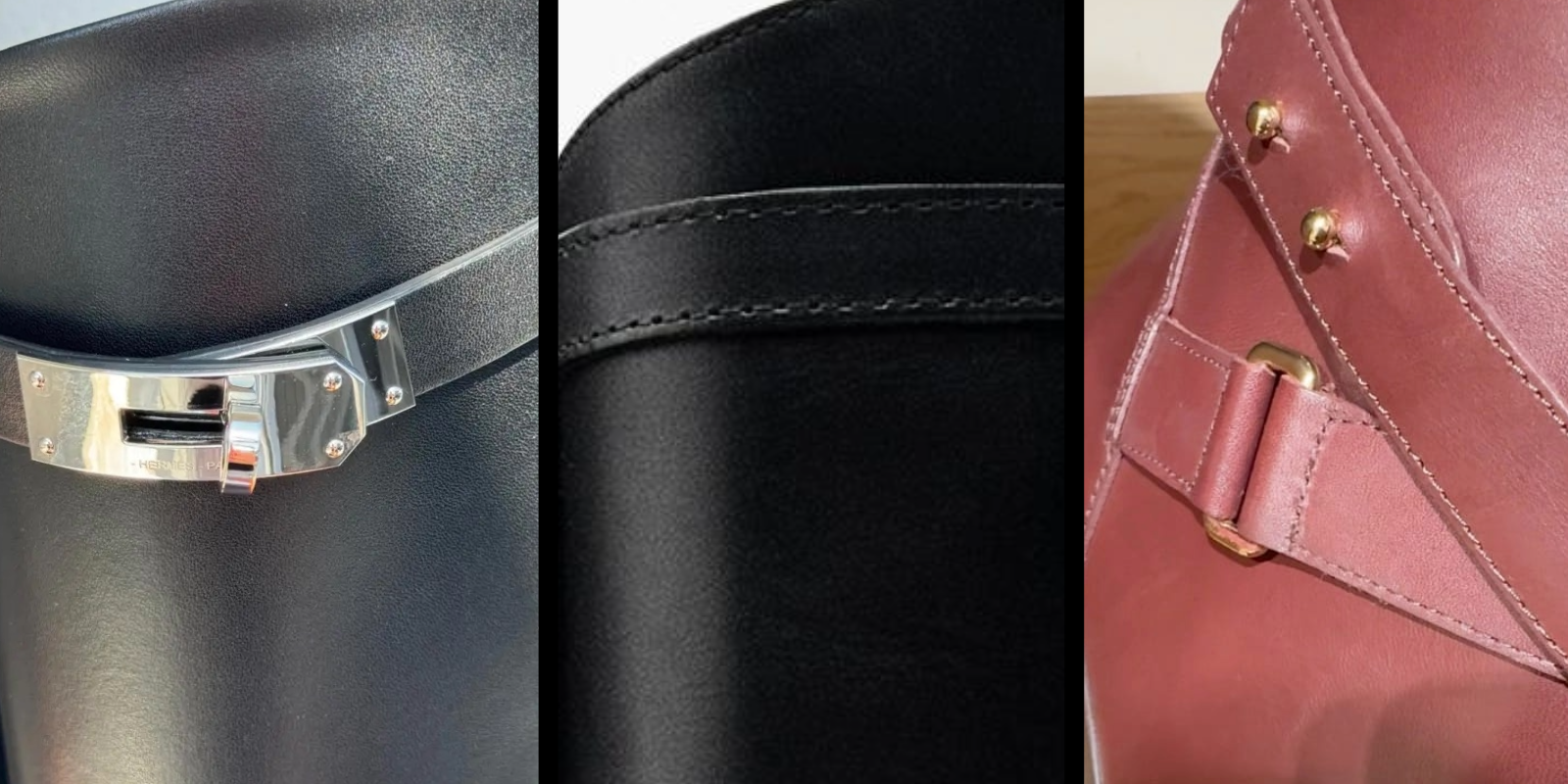
Hermès' smooth edges versus a bit rougher at Massimo Dutti, then a rough strap that is not removable
If your boots have a decorative strap, examine the edges. Hermès features a smooth raw edge; more affordable options may have rougher finishing. The real question: is the strap removable? If you can take it off, rougher edges matter less. If it's permanent, like the boot at $448, that rough edge finish will spoil the rest of the boot. It's a great example of designs that offer luxury signifiers, but not actual luxury finishes.
Shaft Flexibility
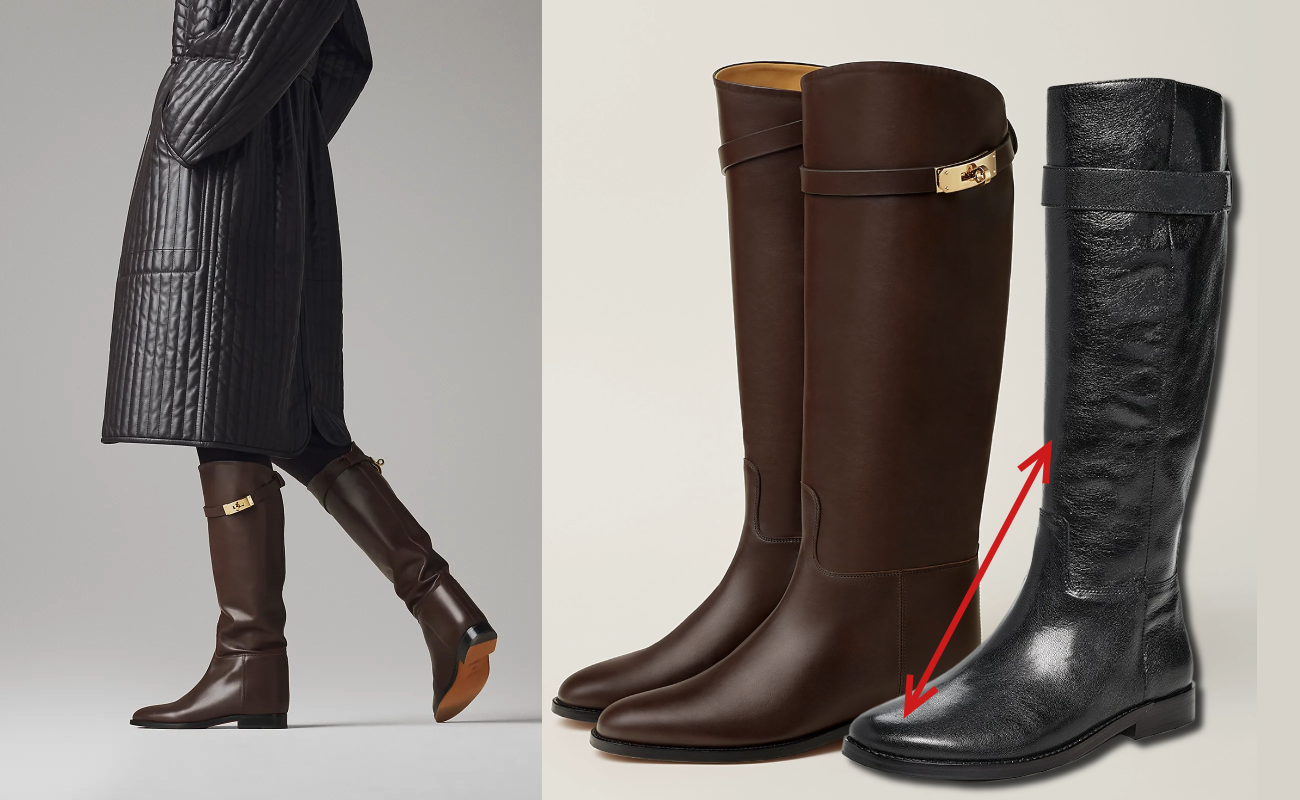
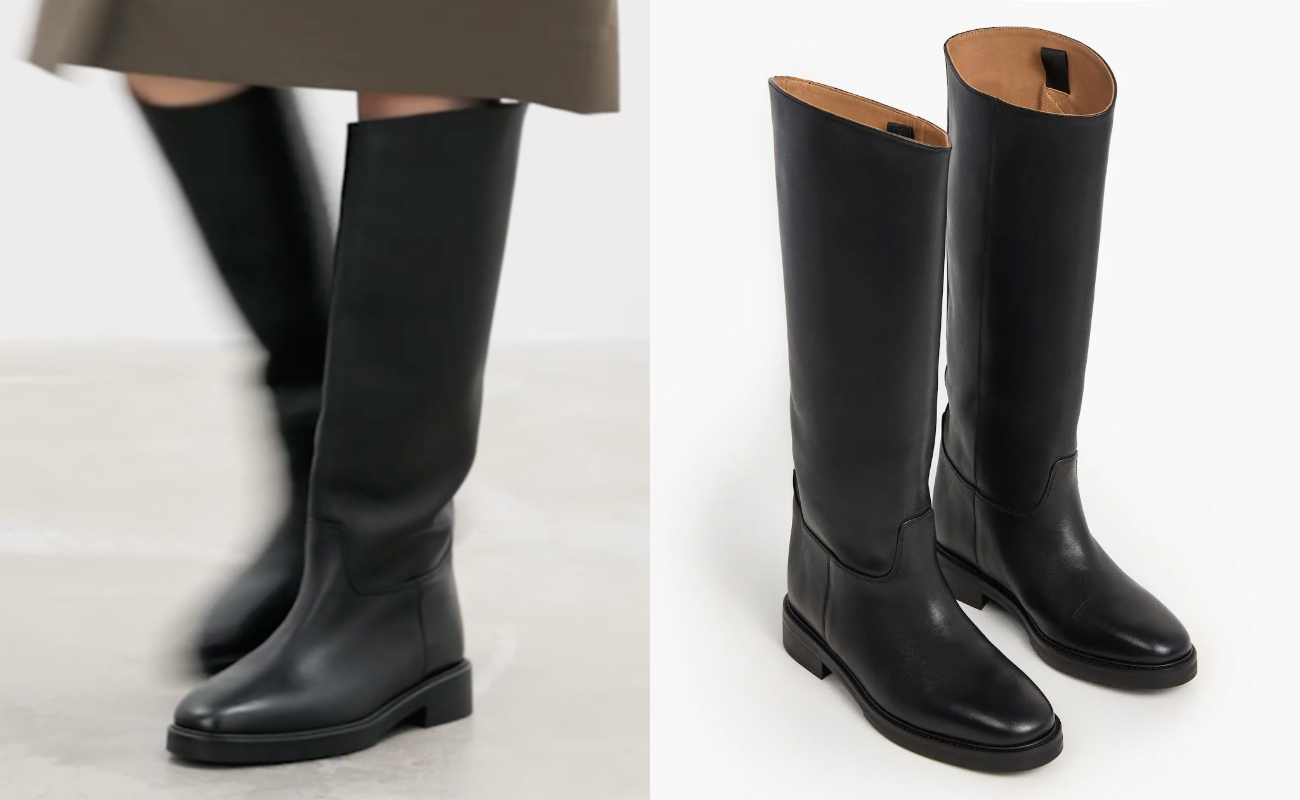
Hermès bends naturally but stays cohesive. The shiny black boot looks like two different materials stitched together. Flattered flexes beautifully in motion, cohesive when still
The shaft should naturally flex more than the structured foot. The leather should still look cohesive when the boot is standing upright – not like two different materials stitched together. Boots from Massimo Dutti and Flattered handle this structural challenge well.
The Profiles
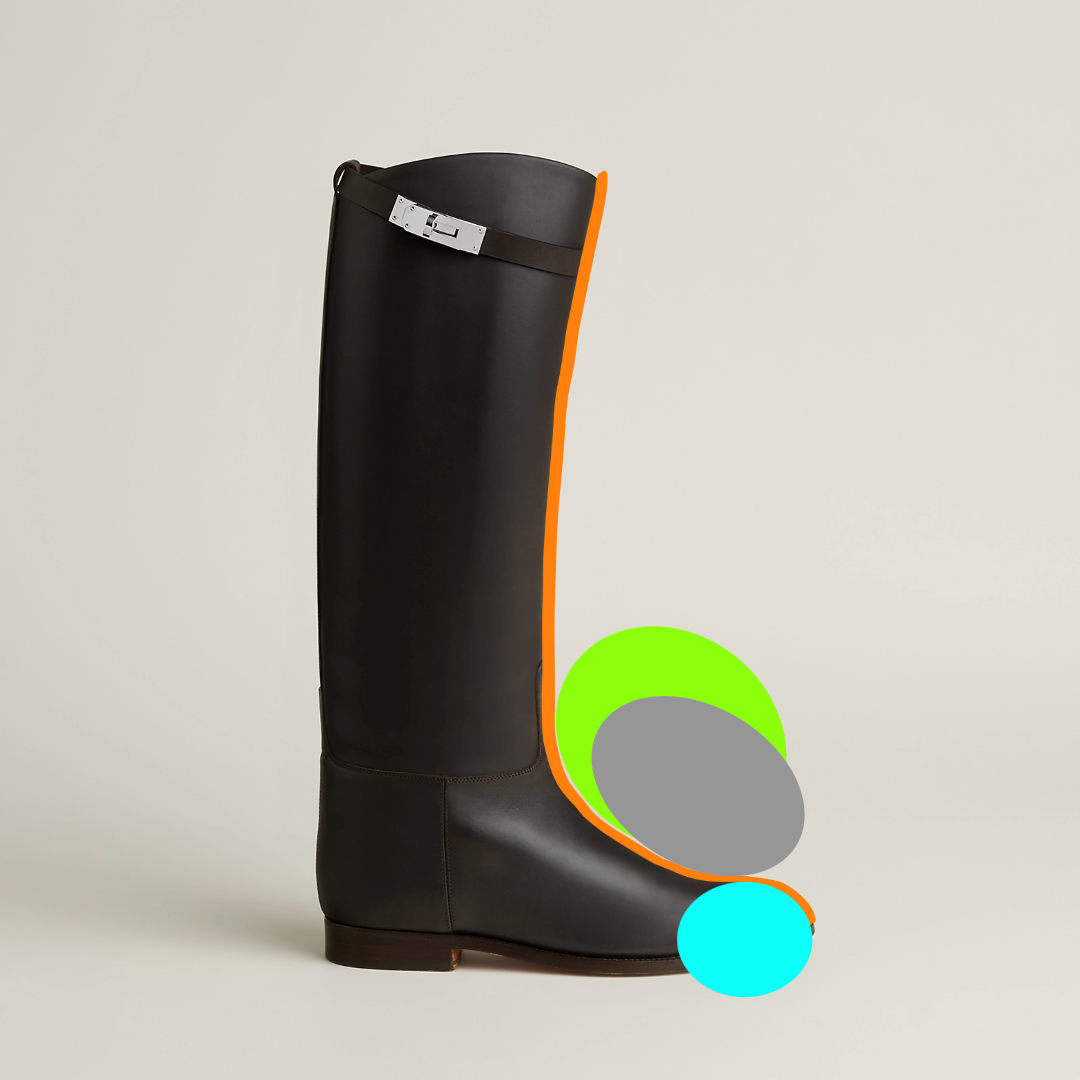
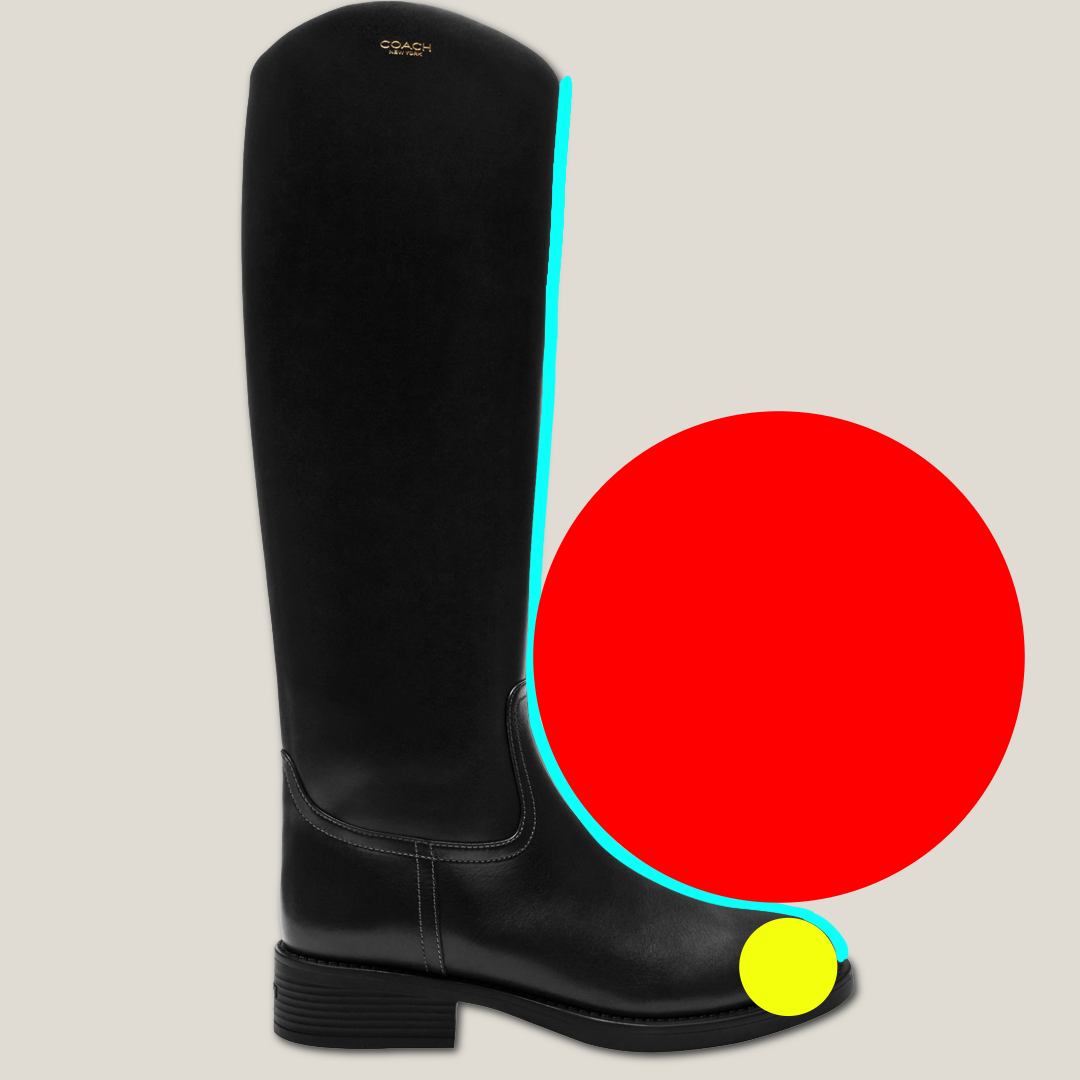
To sketch Hermès' profile, you bridge together 3 ovals, which need to be angled. Coach's profile is more like two circles
The difference between a $295 Coach boot and a $3,175 Hermès isn't just materials. It's complexity and refinement. The Hermès profile has multiple inflection points, creating a more precise silhouette by bridging together a series of small curves, as illustrated with the ovals above. The toe box is flatter and more deliberate. Every edge is finished with different precise steps, each requiring time and expertise.
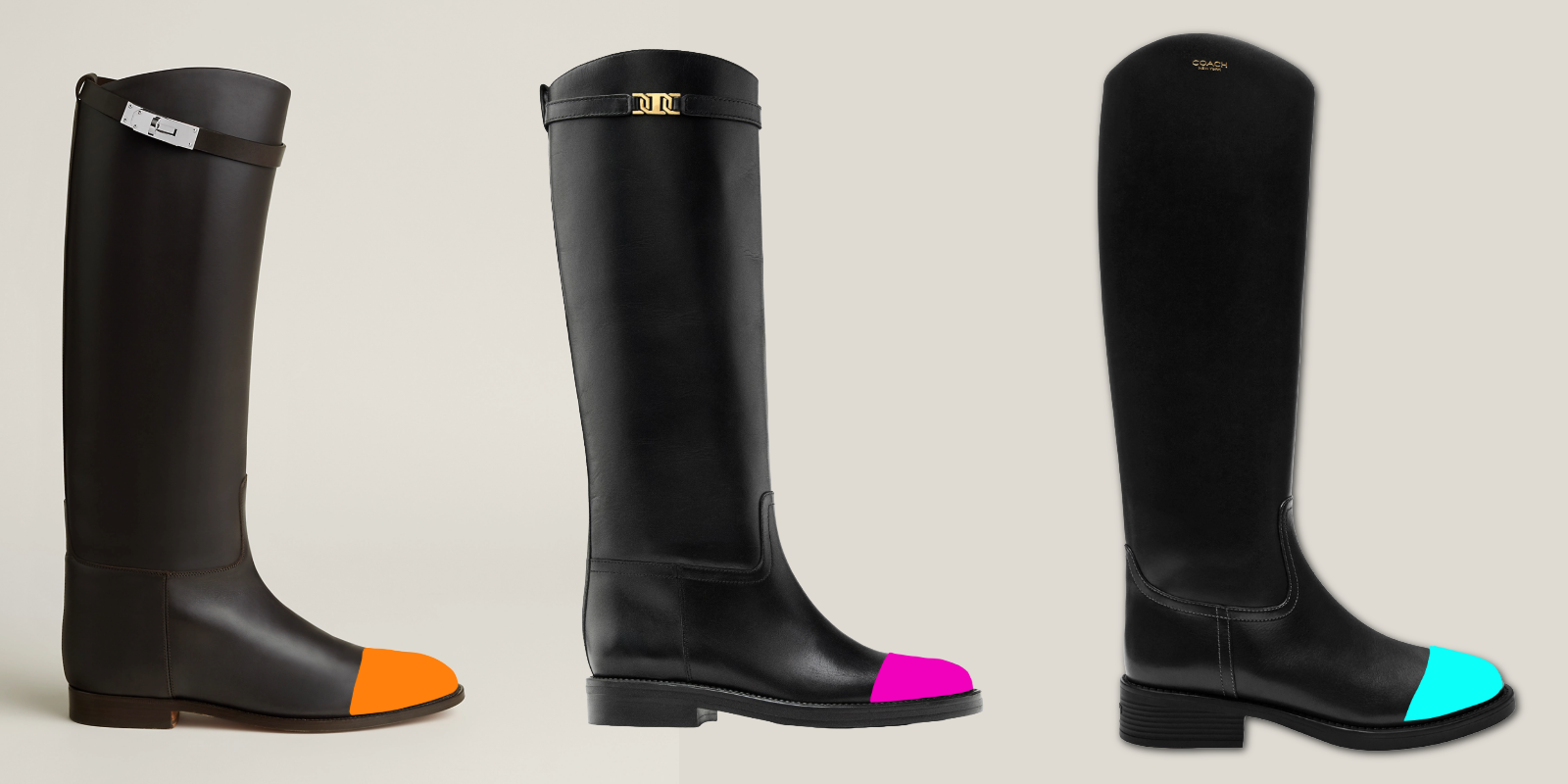
Here's where I land: Massimo Dutti at $390 reads as more sophisticated than Coach, despite Coach having a smoother heel counter. Massimo Dutti's sole profile, with its subtle curve, as opposed to Coach's dramatic up-slope, creates a more refined overall impression. Luxury shoes tend to have flatter toe boxes that are more bread slice than dinner roll, and, for me, Coach's shape falls in the latter category. Both boots have their strengths; it's a matter of prioritizing what's important to you.
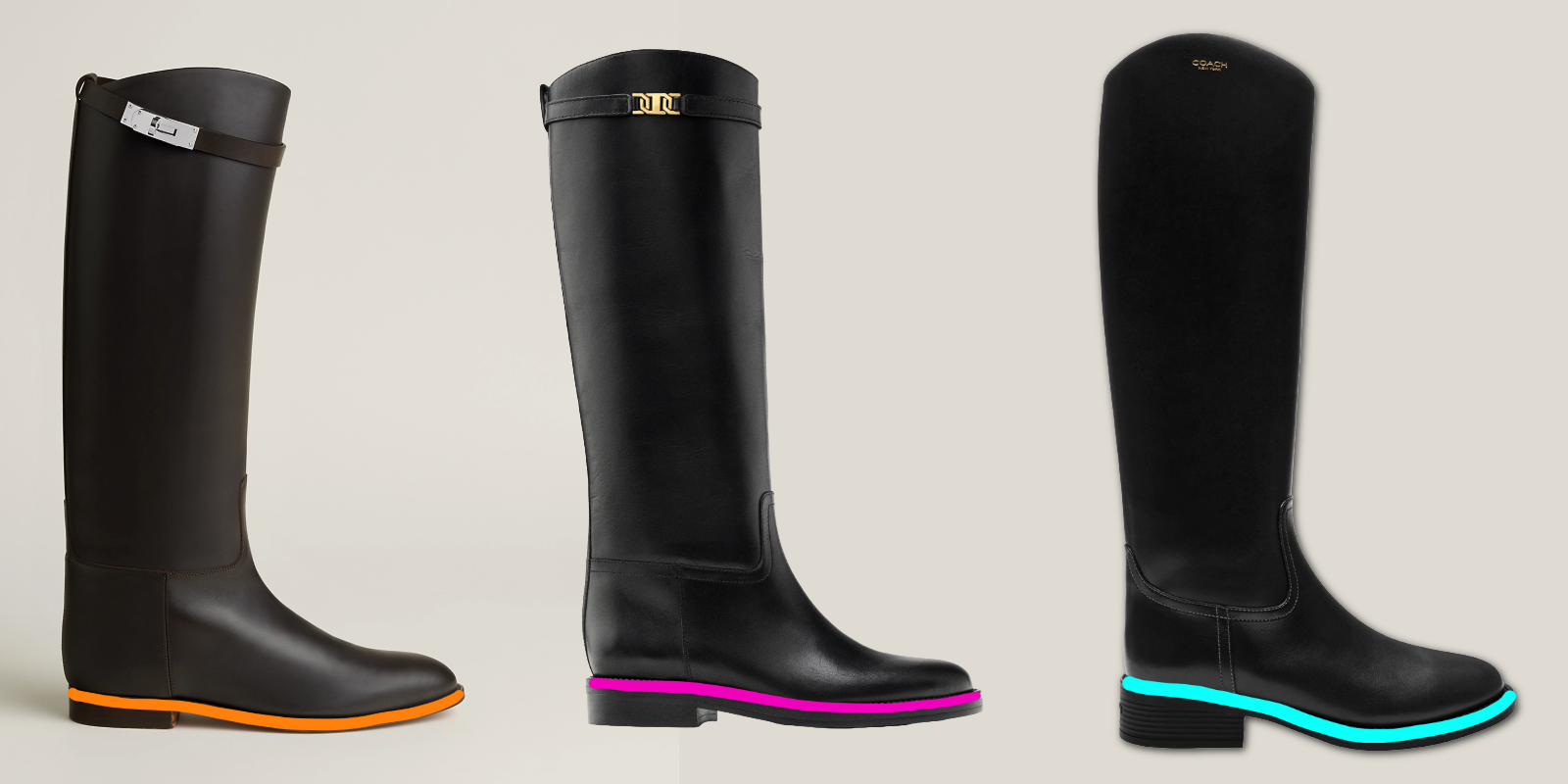
My Recommendations Across Price Points
Around $300:
- Coach Park Knee High Boot ($295): Smoothest heel counter in this range, though the rounder toe box and dramatic sole slope read more casual
- Mango Knee-High Leather Boots ($270): 100% leather upper with surprising quality for the price. If some stitches are scratchy inside, consider whether you received a defect or if you can stick some moleskin padding to smooth it out.
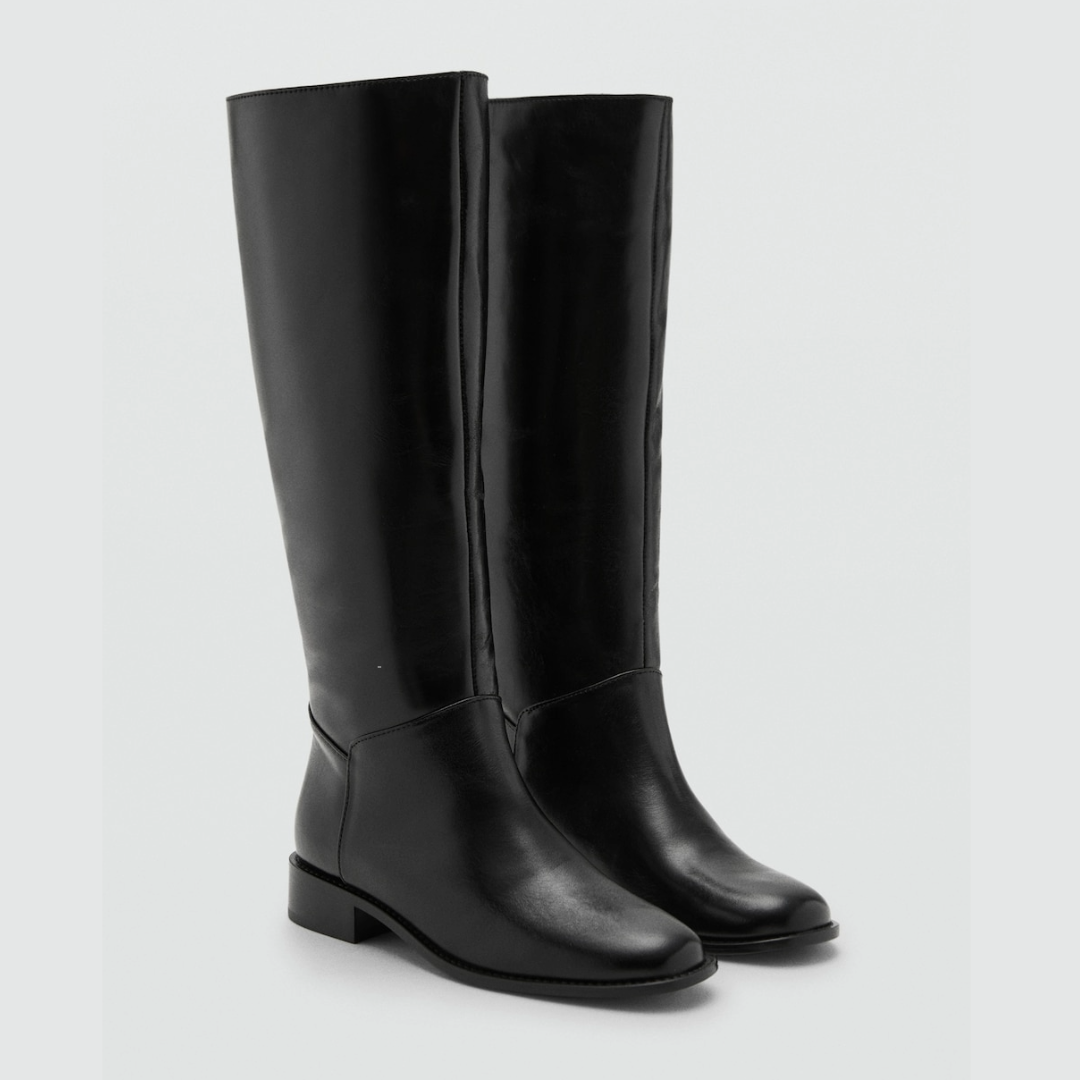 |
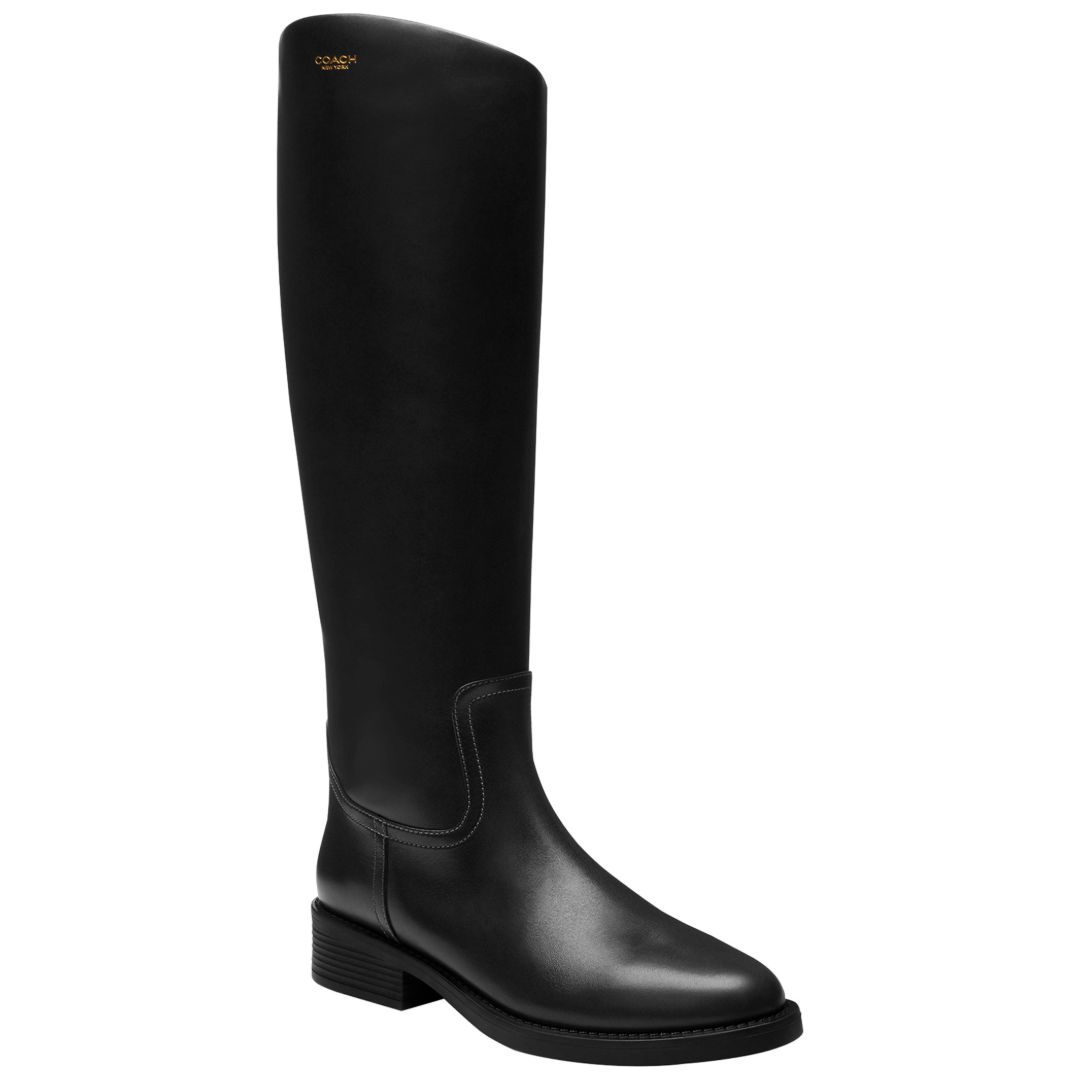 $295 |
